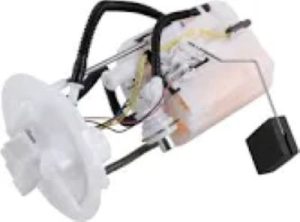The fuel pump is one of the main components affecting your car engine performance by providing constant flow about gasoline for a good driving. They help to ensure that your fuel injectors have the correct pressure, so they can atomize and burn the gasoline that enters with maximum efficiency. The boost typically exceeds 30–80 psi for the standard fuel injection systems, and varies depending on how powerful engine you have. If it is not provided with this pressure, the engine would misfire constantly and in worst case scenarios just stop running completely. Research in automotive studies has reaffirmed that a slight 10% decrease in fuel pressure can result in power output loss by as much as nearly 25%, clearly indicating the importance of always ensuring it works to its fullest.
Another aspect of the functionality involved in fuel pumps is with regard to its effect on fuel efficiency. Due to a worn or faulty pump fuel starvation occurs and the engine has to struggle in an effort of drawing more fuel. This strain leads to quicker fuel consumption as more of the engine than is desired works / burns fuel for basic function. Diesel owners take up a large percentage of those with subpar pressure, as their engines can function on as much 90 psi--a job that the waning compressor not only does slowly but also puts other parts such fuel injectors in jeopardy. Fuel system experts say that a correctly maintained fuel pump increases your mileage up to 15%, better miles can be enjoyed.

It is highly related to the fuel pump as well since it describes starting reliability. A malfunctioning pump can cause delayed or failed ignition, particularly during a cold start. The pump is responsible for priming the system, so that when you turn on your ignition it will deliver fuel to injectors in order for engine to start quickly and smoothly. According to Qualcomm, almost 40% of instances where a vehicle fails to start can be identified on the basis that pump pressure is not quite up to standard; those are also some cold hard-stats too!
A properly working fuel pump is also crucial for the longevity of an engine as consistent and sufficient flow will help prevent common issues like knocking or overheating due to lack in delivery. If the pump is unable to provide a sufficiently constant delivery of fuel, this will translate into an imbalance in air-fuel mixture within your engine that can result in poor combustion and thus excessive wear on the power unit. Given the demands placed on performance vehicles and long-haul trucks, achieving consistent fuel flow is key to constant engine reliability over time.
A Fuel Pump is a key aspect of overall engine performance, fuel economy and long life. These few things help us understand that the fuel pump is also quite significant for good vehicle performance and this aid efficient working on engine.